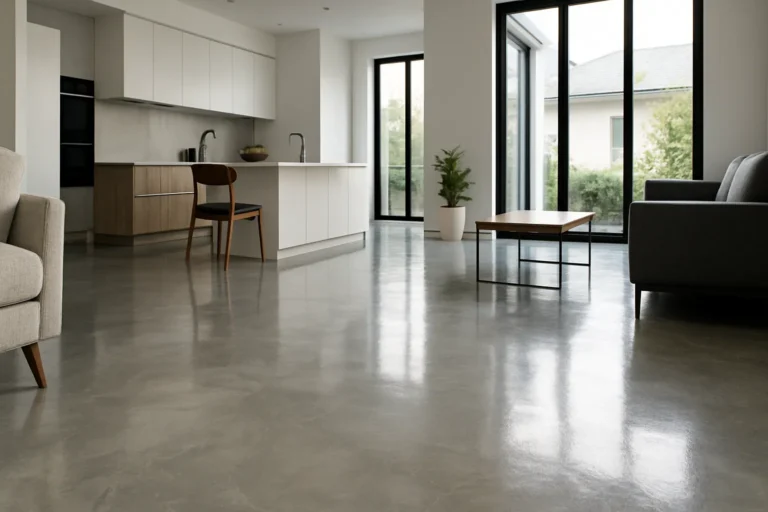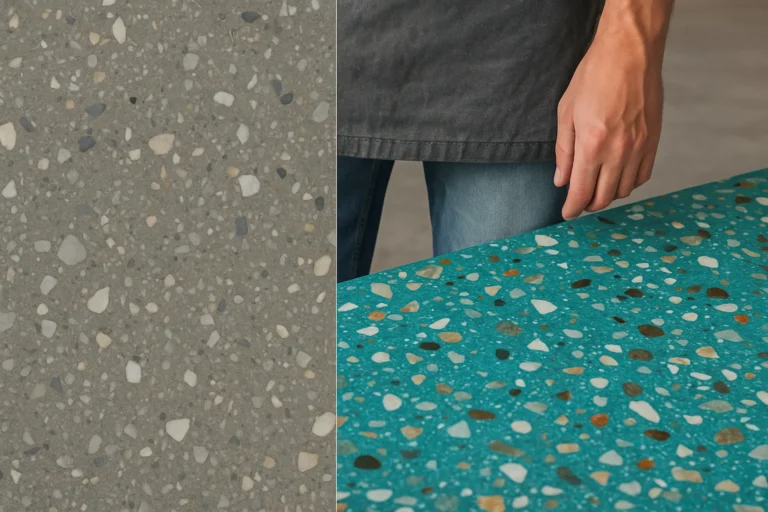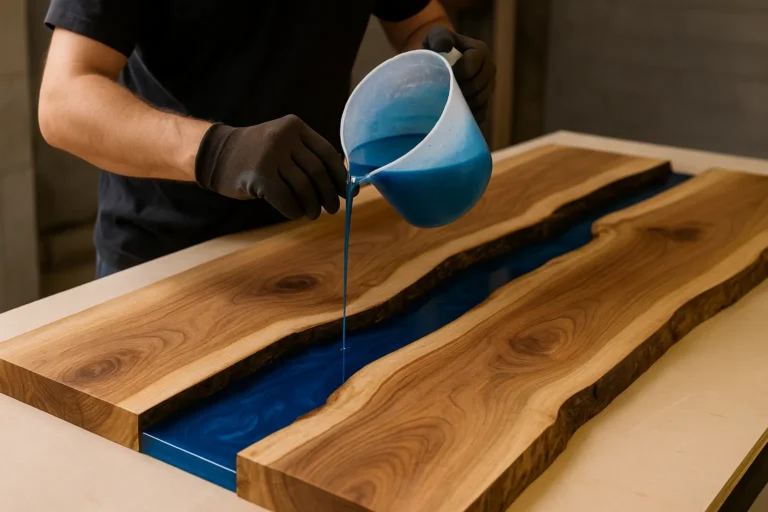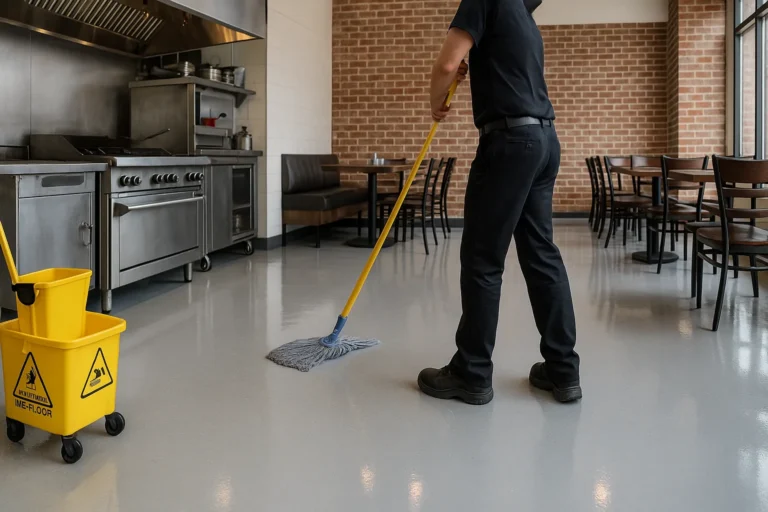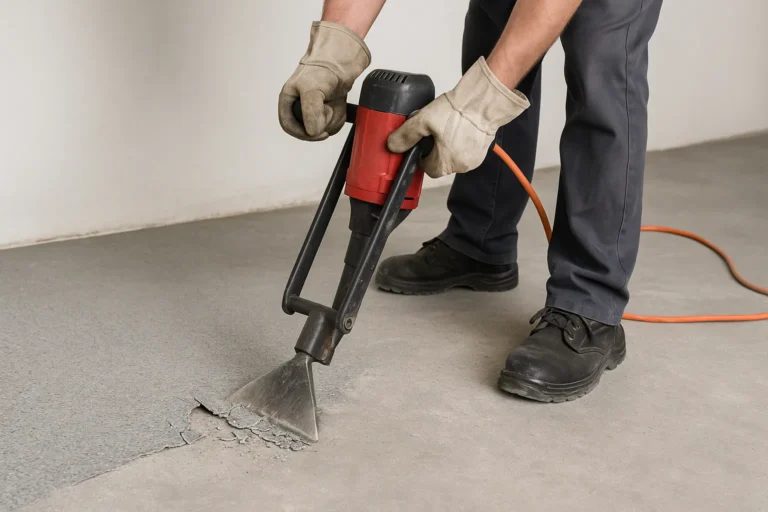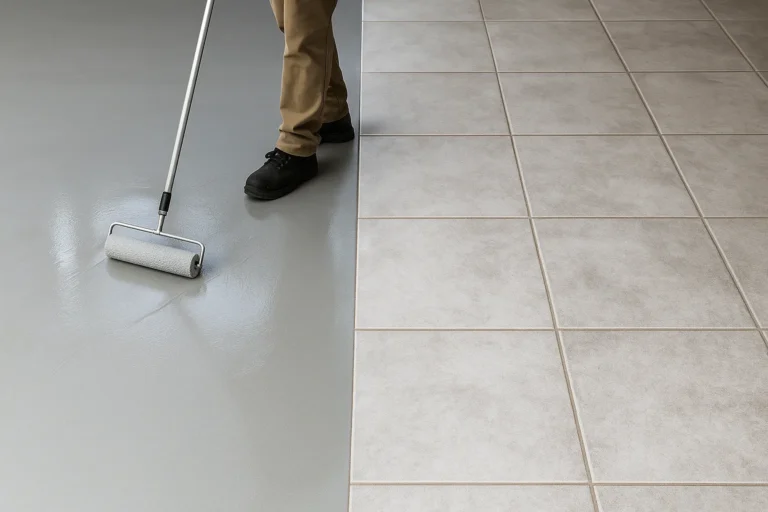When it comes to choosing the right pool deck sealer in Dubai, the decision often boils down to two popular options: Polyaspartic and Acrylic. Each has its unique advantages and is suited to different needs and preferences. This article will guide you through the key differences, benefits, and considerations to help you make an informed choice for your pool deck project.
What Are Polyaspartic Sealer Dubai and Acrylic Coating for Pool Decks?
Polyaspartic sealers are a type of polyurea coating known for their durability and fast curing times. They are particularly popular in Dubai due to their ability to withstand harsh weather conditions. On the other hand, acrylic coatings are water-based solutions that offer a cost-effective and easy-to-apply option for pool decks. They are favored for their aesthetic versatility and breathability.
- Polyaspartic Sealers : Known for quick curing and high durability.
- Acrylic Coatings : Cost-effective and easy to apply with a variety of finishes.
Key Differences Between Polyaspartic and Acrylic Sealers
Polyaspartic and acrylic sealers differ significantly in terms of their chemical composition, application process, and performance characteristics. Polyaspartic sealers offer superior resistance to UV rays and chemicals, making them ideal for outdoor use in Dubai’s sunny climate. Acrylic coatings, while less durable, provide excellent breathability and are easier to apply.
- Chemical Composition : Polyaspartic is more robust against chemicals.
- Application Process : Acrylic is simpler and more user-friendly.
- Performance : Polyaspartic excels in durability and UV resistance.
Benefits of Using Pool Deck Sealers in Dubai’s Climate
Dubai’s climate is characterized by intense heat and high UV exposure, which can take a toll on unprotected pool decks. Using a sealer helps protect the surface from these elements, extending the life of the deck and maintaining its appearance. Both polyaspartic and acrylic sealers offer benefits tailored to these conditions.
- Protection from UV Rays : Prevents fading and discoloration.
- Heat Resistance : Keeps the deck cooler underfoot.
- Moisture Barrier : Reduces water damage and mold growth.
Durability and Performance of Polyaspartic Sealers in Dubai
UV Resistance and Color Retention
Polyaspartic sealers are renowned for their excellent UV resistance, which helps maintain the color and appearance of the pool deck over time. This is particularly important in Dubai, where the sun can be relentless.
Chemical and Abrasion Resistance
These sealers also offer superior resistance to chemicals and abrasions, making them ideal for areas with heavy foot traffic and exposure to pool chemicals.
Fast Curing Time and Quick Return to Service
One of the standout features of polyaspartic sealers is their fast curing time, allowing for a quick return to service. This minimizes downtime and inconvenience.
- UV Resistance : Maintains color and appearance.
- Chemical Resistance : Withstands pool chemicals and cleaning agents.
- Fast Curing : Reduces downtime for pool deck use.
Advantages of Acrylic Coatings for Pool Decks
Cost-Effectiveness and Ease of Application
Acrylic coatings are a budget-friendly option that is easy to apply, making them accessible for DIY enthusiasts and professionals alike.
Breathability and Moisture Vapor Transmission
These coatings allow moisture to escape from the substrate, preventing issues like blistering and peeling.
Wide Range of Color Options and Finishes
Acrylic coatings offer a variety of colors and finishes, allowing for customization to match any design preference.
- Affordable : Cost-effective for large areas.
- Easy Application : Suitable for DIY projects.
- Customizable : Wide range of colors and finishes.
Comparing Application Methods for Polyaspartic and Acrylic Sealers
Surface Preparation Requirements
Proper surface preparation is crucial for both types of sealers to ensure adhesion and longevity. This typically involves cleaning and repairing the deck surface.
Application Techniques and Tools
Polyaspartic sealers require more specialized tools and techniques, while acrylic coatings can be applied with basic tools like rollers and brushes.
Drying and Curing Times
Polyaspartic sealers cure faster than acrylics, which can be advantageous for projects with tight timelines.
- Preparation : Clean and repair surfaces before application.
- Tools : Polyaspartic requires specialized equipment.
- Curing : Polyaspartic cures faster than acrylic.
Long-Term Maintenance of Polyaspartic vs Acrylic Pool Deck Sealers
Cleaning and Recoating Procedures
Both sealers require regular cleaning to maintain their appearance and performance. Recoating intervals may vary based on usage and environmental conditions.
Expected Lifespan and Durability
Polyaspartic sealers generally offer a longer lifespan due to their superior durability, while acrylic coatings may need more frequent recoating.
Cost Comparison Over Time
While acrylic coatings are cheaper initially, polyaspartic sealers may offer better value over time due to their longevity.
- Maintenance : Regular cleaning is essential.
- Lifespan : Polyaspartic lasts longer.
- Cost : Consider long-term value vs. initial cost.
Environmental Considerations for Pool Deck Sealers in Dubai
VOC Content and Emissions
Both types of sealers have varying levels of VOC emissions, with acrylics typically being more environmentally friendly.
Heat Reflectivity and Energy Efficiency
Sealers with high heat reflectivity can contribute to energy efficiency by keeping surfaces cooler.
Impact on Surrounding Ecosystems
Choosing low-VOC sealers can minimize environmental impact and promote sustainability.
- VOC Levels : Acrylics are generally lower in VOCs.
- Heat Reflectivity : Contributes to cooler surfaces.
- Eco-Friendly : Choose low-VOC options for sustainability.
Safety Features of Polyaspartic and Acrylic Pool Deck Coatings
Slip Resistance Properties
Both sealers can be formulated to enhance slip resistance, an important safety feature for pool decks.
Chemical Safety During and After Application
Proper handling and application are crucial to ensure safety during the sealing process.
Compliance with Local Safety Regulations
Ensure that the chosen sealer complies with local safety and environmental regulations.
- Slip Resistance : Important for safety around pools.
- Chemical Safety : Follow guidelines during application.
- Regulations : Ensure compliance with local laws.
Aesthetic Options for Pool Decks with Polyaspartic and Acrylic Sealers
Color Customization and Decorative Finishes
Both sealers offer a range of color options and decorative finishes to enhance the visual appeal of the pool deck.
Texture and Pattern Possibilities
Textured finishes can be achieved with both types of sealers, adding visual interest and slip resistance.
Integration with Existing Pool Deck Designs
Sealers can be customized to complement existing design elements and landscaping.
- Customization : Wide range of colors and finishes.
- Textures : Add interest and safety.
- Design Integration : Complements existing features.
FAQs
What is the best sealer for a pool deck in Dubai?
The best sealer for a pool deck in Dubai depends on your specific needs. Polyaspartic sealers offer superior durability and UV resistance, making them ideal for harsh climates. However, acrylic coatings are more cost-effective and easier to apply, providing a good balance of performance and affordability.
How long does polyaspartic sealer last on a pool deck?
Polyaspartic sealers can last for several years on a pool deck, often outlasting acrylic coatings. Their longevity is due to their robust resistance to UV rays, chemicals, and abrasions, making them a durable choice for high-traffic areas.
Can acrylic coating be used on concrete pool decks?
Yes, acrylic coatings can be used on concrete pool decks. They provide a protective layer that enhances the deck’s appearance and offers some resistance to water and UV damage. However, they may require more frequent maintenance compared to polyaspartic sealers.
Is polyaspartic sealer better than epoxy for pool decks?
Polyaspartic sealers are often considered better than epoxy for pool decks due to their faster curing times and superior UV resistance. While epoxy is durable, it can yellow over time when exposed to sunlight, making polyaspartic a more suitable option for outdoor use.
How often should I reseal my pool deck in Dubai?
The frequency of resealing a pool deck in Dubai depends on the type of sealer used and the level of exposure to environmental elements. Polyaspartic sealers may require resealing every 5-7 years, while acrylic coatings might need more frequent attention, approximately every 2-3 years, to maintain optimal performance.
